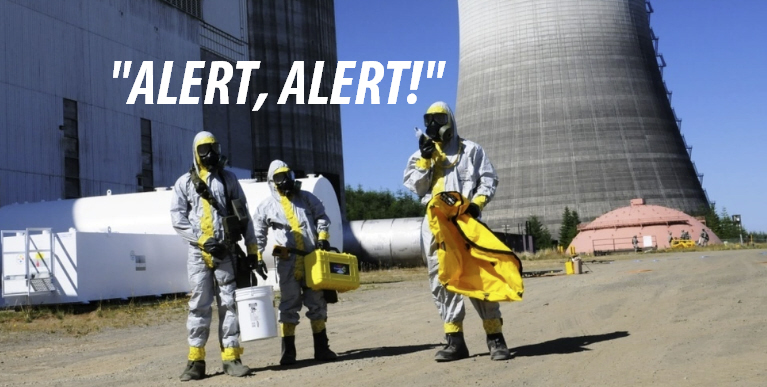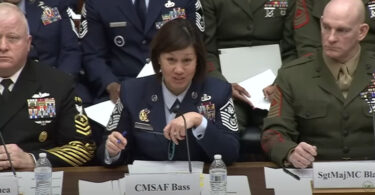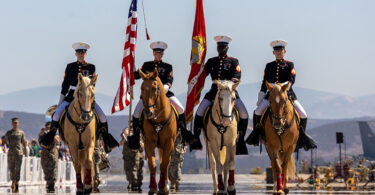A recent post on LinkedIn about West Point has been receiving a lot of attention.
Entitled, “Behind the Walls of West Point: How Toxic Leadership and Systemic Failures Threaten Army Values,” it is written by Lt Col. John Hunter, USA ret, former Director of Football Operations, Associate Athletics Director Recruiting/Admissions, Army West Point Athletics Department, United States Military Academy at West Point.
Not only the post itself (read it at the end below) but also the comments on the post, including this NUCLEAR one by Lt Col. Ken Segelhorst, US Army ret. As background, in an article he wrote on SOFREP, his bio was listed as:
Ken Segelhorst is a retired U.S. Army lieutenant colonel with over 20 years of service. As a Green Beret and information operations practitioner, he operated extensively across the Middle East and Africa, leading combat operations and advising U.S. ambassadors and foreign officials.
In addition to his operational experience, Ken served as an assistant professor at the United States Military Academy at West Point, where he was the course director for MX400: Officership, the superintendent’s capstone course.
His time at West Point provided an unfiltered view of the cultural shortcomings and systemic challenges plaguing both the academy and the broader military, fueling his advocacy for greater accountability, reform, and transparency.
Here is his comment to Lt. Col. Hunter’s post:
“When my wife and I accepted positions as instructors at the United States Military Academy, we were excited to join an institution with such a rich legacy.
But that excitement quickly faded as we realized the academy was not what it once was. The polished exterior couldn’t hide the reality beneath – a once storied institution overcome by corruption.
In fact, it was the most corrupt military organization I encountered during my 20+ years of service – even worse than the numerous third-world militaries I advised in the Middle East and Africa as a Green Beret.
Just a short list of what I saw:
1. Coercion and intimidation to silence dissent.
2. Deliberate violations of executive orders with no fear of consequences.
3. Labeling members of Congress and their representatives as “Friends” or “Enemies” of the Academy and selectively withholding information from those deemed hostile.
4. Senior leaders bragging about maintaining multiple phones to dodge investigations.
5. Notifying faculty and staff of pending FOIA requests so they had time to delete the requested information.
6. Intentional misuse of “For Official Use Only” (FOUO) and Controlled Unclassified Information (CUI) labels to block information from being released.
7. Staff Judge Advocate (SJA) officers dictating to investigators what outcome is desired by leadership before the investigation even started.
8. Investigators refusing evidence because it didn’t fit the predetermined conclusion.
9. Ruthless targeting of whistleblowers.
That’s just a short list of what I saw. I could go on and on.
These weren’t isolated incidents – they were symptoms of a culture more concerned with protecting itself than upholding the values it claims to instill in future leaders.
For an institution built on honor, integrity, and service, the disconnect between its ideals and reality was impossible to ignore.
I left the academy disillusioned but with a clear understanding: No institution, no matter how prestigious its reputation, is immune to corruption when accountability takes a backseat to optics.”


#9 explains in part why West Point seems to be so obsessed with the MacArthur Society, and they have experienced many other points on this list.
He later said in a reply:
“While I believe our service academies are worth saving, I think it is going to require a massive overhaul – to include a purge of the leaders who have not only allowed but have actively perpetuated the cancer that is rotting these institutions from within. Pete Hegseth, put me in coach. I’d love to help address this one!”
In response to someone discussing the rot, he said:
“The “Old Grads” who returned to the academy as faculty/staff would frequently speak as to how the academy had changed. This went well beyond the typical “The Corps has,” comments.
Many of them found the changed deeply troubling, going so far as to say the only thing recognizable was the structures themselves.
What is also deeply troubling is the great lengths to which academy leadership goes to withhold information from alumni.
Whether it is helping faculty/staff purge FOIA’ed documents to giving a dog and pony shows… the leadership doesn’t want alumni to see what the academy has become. They want those donations to keep flowing in.”
Another comment was by Dr John Schubring, author of “Fight for the Heart of West Point: Duty and Honor vs. NCAA Football” (which was based on his doctoral thesis):
“I have a new book out entitled, “Fight for the Heart of West Point: Duty and Honor vs. NCAA Football” (Amazon). The early chapters document the ethics and character so carefully crafted by Father of West Point Colonel Sylvanus Thayer (Superintendent of West Point from 1817-1833) in conjunction with his diligent faculty.
Presidents Washington, Adams and Jefferson had one mission for a military academy: produce officers of intellectual rigor and high moral character. In my book I explain as evidenced by three major academic cheating scandals how NCAA Football is corrupting USMA.
What you have commented on are not isolated incidents. West Point is going through a “crisis of identity” as it grapples with its real mission, to produce officers of keen intellect and high moral character vice the dysfunctional desire by its administration to have a “football first” mentality.
Case-in-point, the “2020 Online Cheating Scandal” was no accident. It was precipitated in a decision by then West Point Superintendent Robert Caslen in December 2013 to “take a risk” on star football players for the purpose of beating Navy and having a “winner.” (Caslen himself was a former Army football player).
This “risk” put USMA at risk, since many varsity football players were admitted without necessarily meeting academic, character and leadership standards expected of non-varsity cadets.
So, the propensity to cheat academically to stay eligible for football was huge. It produced a double standard vice the Honor Code which led to cynicism as regards the Code by non-varsity athlete cadets.
Hence, John and Ken, your experiences were not isolated events. West Point needs reform so our nation receives the officers it deserves, and we commission officers of great moral character. This is a national security issue.”
Here is the original post on LinkedIn:
Behind the Walls of West Point: How Toxic Leadership and Systemic Failures Threaten Army Values
By Lt. Col. John Hunter, USA ret
Former Director of Football Operations, Associate Athletics Director Recruiting/Admissions, Army West Point Athletics Department, United States Military Academy at West Point.
A Marred Chapter in an Honorable Career
What ought to have been the crowning achievement of a 25-year career in the United States Army instead became a sobering reminder of the challenges that remain in safeguarding the integrity of our institutions.
My tenure at the United States Military Academy at West Point, from April 2021 until my retirement in May 2024, offered opportunities for professional growth yet was marked by systemic failures, a toxic culture, and leadership that strayed from the values it was sworn to uphold.
I entered this chapter of service with high expectations, equipped with the skills and resolve honed during a career in the 1st Special Forces Command and Joint Special Operations Command.
The assignment to the Army West Point Athletics Department (AWPAD) was an opportunity to combine my military experience with my academic background in Sport Administration, contributing to the development of collegiate athletics at the highest level.
Yet, alongside the privilege of service came the revelation of leadership shortcomings and operational dysfunction that could not be ignored.
A Transition with Purpose
Arriving at West Point in April 2021, I undertook a range of responsibilities spanning operations, logistics, and human resources.
These roles required the establishment of systems where none existed, a challenge that was met with the diligence expected of any officer.
By August 2021, I transitioned to a focused role in operations and, subsequently, took on the demanding position of Director of Football Operations. This role encompassed admissions liaison duties, player development, and on-campus recruiting, placing operational demands on par with those of a deployment.
Despite unwavering dedication, opportunities to take leave were denied, resulting in an accumulation of over 30 days of unused leave by the end of 2022.
The intensity of the workload was compounded by a work environment that failed to reflect the values of professionalism and mutual respect expected within the Army.
The Challenge of Leadership and Ethics
From the outset, it became apparent that the culture within AWPAD was riddled with unprofessionalism, nepotism, and a disregard for Army regulations.
The leadership of key figures, including Deputy Athletic Director COL Gretchen Nunez, Former Senior Associate Athletic Director LTC (RET) John Nawoichyk, and Associate Athletics Director – Broadcasting and Licensing Richard DeMarco, reflected priorities misaligned with the principles of accountability and fairness.
By January 2022, my workload increased without commensurate support, and by August of the same year, I was abruptly reassigned to the U.S. Military Academy staff. This transition lacked justification and resulted in my placement in a role that not only misused my qualifications but also violated ethical standards by involving cash-handling duties in direct contravention of regulations. These assignments exacerbated an existing shoulder injury, further straining my ability to perform.
A Necessary Step: Filing the Inspector General Complaint
In September 2022, I sought the counsel of the West Point Inspector General regarding the systemic issues I encountered.
While my concerns were acknowledged as valid, I was cautioned against expecting meaningful change and advised to simply endure. This unsatisfactory response epitomized the systemic inertia that undermines the Army’s mechanisms for accountability.
Only after securing my retirement did I formally file a complaint in April 2023. This complaint outlined several critical failures:
- Misuse of Personnel: Assignments violating regulations and disregarding qualifications.
- Disregard for Medical Profiles: Neglect of documented medical conditions, resulting in further physical harm.
- Compromised Evaluations: Pressure to falsify officer evaluations, eroding the integrity of the process.
- Toxic Leadership: Instances of retaliation, rumor-mongering, and marginalization.
Despite substantiating my claims with evidence, the complaint was ultimately dismissed. This outcome, though expected, underscored the broader challenges of enforcing accountability within the institution.
Reflections on Reform and Responsibility
The systemic issues I encountered at West Point reflect a larger malaise within leadership culture—one that permits ethical lapses, tolerates unprofessionalism, and diminishes the morale of those it is meant to lead.
The failure of the Inspector General system to act decisively is emblematic of the broader reluctance to confront these issues head-on.
This culture of inaction sends a disheartening message: that raising legitimate concerns may invite retaliation rather than resolve. Such conditions are not only corrosive to trust but also inimical to the values of duty, honor, and respect that the Army holds dear.
A Call to Renewed Purpose
As I transition to civilian life, my resolve to advocate for ethical leadership and systemic reform remains undiminished. The Army must rise to the challenge of addressing the structural and cultural flaws that undermine its mission. Key measures include:
- Reforming Accountability Systems: Ensuring the Inspector General process functions transparently and effectively.
- Strengthening Leadership Training: Prioritizing ethical decision-making and adherence to regulations.
- Protecting Whistleblowers: Safeguarding individuals who raise concerns from retaliation.
- Enforcing Standards: Holding leaders accountable for breaches of professionalism and integrity.
True reform is not a matter of convenience but a necessity to preserve the honor and efficacy of the Army. Leadership must embody the values it expects of its soldiers, ensuring that the sacrifices of service are met with dignity and respect.
While my time at West Point did not conclude as envisioned, it has reaffirmed my commitment to fostering environments where integrity and accountability prevail.
The Army’s potential to serve as a beacon of professionalism remains undiminished, but this requires confronting its shortcomings with courage and conviction.
Only through genuine reform can the Army fully honor its duty to those who serve under its banner.








Leave a Comment